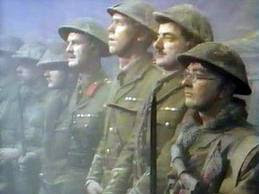 ]
]Photo: Sonya, Mackedie, and Randy Norton in the back yard of the house on Shasta Avenue in San Jose, June 1974
My old friend Sonya is here this week. Our friendship goes back to the mid-1960s, when we were alternate lifestyle ladies together, sashaying around in our long skirts and thrift store glad rags.
In 1972 I rented a room from Sonya and her husband Randy. They lived with their infant daughter Mackedie in a house in San Jose just off the Alameda.
That summer Sonya, Mackedie, and I hit the thrift stores and nurseries and tofu factories of San Jose, and went to the Rosicrucian Museum, the Montalvo mansion, and the Winchester House. We took long drives on Skyline Boulevard where the San Francisco Bay area fell away to the east and the Monterey Bay area fell away to the west. The following winter I decided to move to Vashon, and that was the end of my time there.
Last night she told me the story of the time she made ginger beer.
Sometime after I moved up here, when Randy and Sonya were still living in the San Jose house, Sonya decided to make ginger ale. Verner's, “the notorious ginger ale from Detroit that actually has some real ginger in it,” was not strong enough for Sonya's taste. Did I mention that Sonya is addicted to ginger like some of us are addicted to chocolate? Well, she is. She decided she was going to make ginger ale strong enough to meet her standards.
Her husband, Randy, said, “If you're going to go to all that trouble, why don't you make ginger beer?”
She said okay, but a couple of days later, before she'd got around to the brewing, Randy was talking to an old-timer friend of his and came home to tell Sonya, “Mac says to drop a couple of raisins in each bottle.” Old timer ginger beer brewing wisdom, they thought.
Randy brought home two 24-bottle cases of long neck bottles and a bottle capper, and Sonya made the mash following a recipe she found in an old book with recipes for home made beers, wines, and cordials. When after a few days the frothing of the liquid stopped, she bottled up the liquid, dutifully putting two raisins in each bottle as advised by Randy's friend.
Randy then took the two cases of bottles down to the basement, putting them on a shelf on the other side of the washer and dryer.
You can guess what happened next, especially if you've ever bottled your own fizzy liquids. One night when Sonya was lying in bed she heard, she thought, a truck backfire nearby. Didn't give it much thought.
A couple of days later she heard two shots, bang, bang!
That sounded like it was right under the bedroom, she thought with alarm. Then she thought some more.
She went down the stairs to the basement. As she opened the door, BANG!
As she suspected, the ginger beer bottles were exploding.
For the next few weeks whenever Sonya wanted to do the laundry, she held up a metal garbage can lid as a shield in one hand, while carrying her bundle of laundry in the other. She and Randy were afraid to touch or move the bottles because they were so sensitive – opening the door would set off an explosion. Any jiggle or disturbance would set off a bottle or two, and bottles exploded randomly at other times. She said that eventually all but one of the bottles exploded, and they were afraid to touch that one.
Sonya swept up the glass, and decided the raisins had been a mistake. The raisins increased the fermentation to unprecedented heights. She declined to make ginger beer again, though, even without raisins. Being able to do the laundry safely was more important.
I've heard similar stories from other friends who have tried bottling their own fermented or carbonated beverages. Even without raisins it's a tricky business, and explosions often result. You probably shouldn't try it unless you have nerves, and a garbage can lid, of steel. They ought to list those two things in the recipes.





